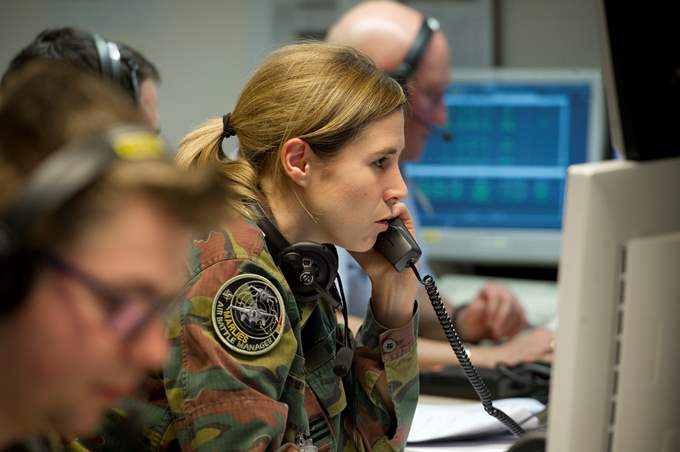The federal government has reached an agreement regarding its spending on defence in light of what Prime Minister Alexander De Croo referred to as a "new security situation."
By 2035, 2% of Belgium's gross domestic product (GDP) will be invested in defence, with six conditions attached, Prime Minister Alexander De Croo stated in a press conference on Saturday evening following a meeting with the core cabinet.
"We have reached an agreement within the government regarding our NATO commitments. We know that, because of the war in Ukraine, we find ourselves in a new security situation, and we as EU countries have lost some of our naivety," he said.
He stressed that Belgium was fortunate to be part of an alliance of so many countries that vow to protect each other when in danger, but that the country must also contribute to this project.
An agreement was reached in early February to spend 1.54% of the country's GDP on Defence by 2030. However, De Croo wanted the government to support an increase to 2% by 2035 before he attends a summit of NATO heads of state and government in Madrid from 28 to 30 June.
He added that the contribution was not a "blank cheque," and that there were various defined conditions attached to it.
Conditions attached to budget
One of the requirements as discussed by De Croo was the need for more "European integration." He explained that there is currently still too much fragmentation in the European defence system and that it is important to "cooperate more and share more knowledge, including joint procurement."
The government has also stated that the Belgian economy and its companies must reap more benefits from being part of the alliance, as today, the "economic return is often too low."
He added that there must also be more return for Belgian society and that security should go further than focussing on the defence of a country alone.
Importantly, the increased budget for defence must not result in other policy domains suffering or receiving less budget, such as climate change. If key investments are made within these domains, such as the construction of wind farms, De Croo stated that Defence will also play a role.
Related News
He added that he wants Europe to continue to encourage investments in Defence, and finally, stressed that more attention should be paid to resilience within the defence system.
"It is important that resilience is more than investing in Defence. Resilience is related to defence but also to strategic choices in the field of energy and food. Resilience is a broad strategy. That is why this decision is necessary," he stated.
During the meeting, it was also decided that various measures to protect households in light of rising energy prices, such as the VAT reduction on energy and expanded social tariff, will be extended until the end of 2022.

